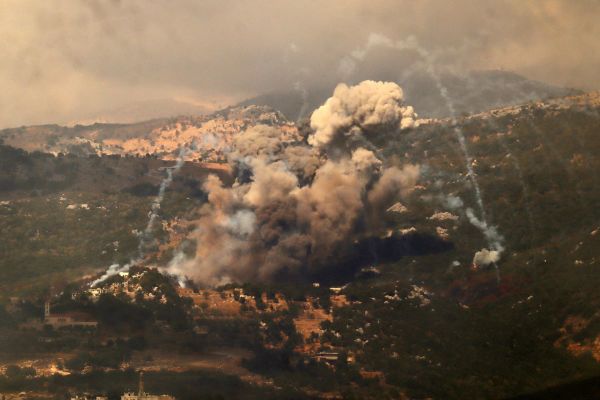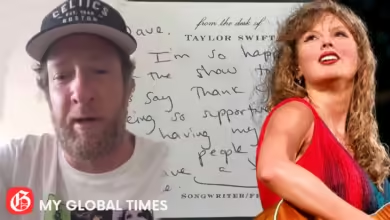Rocket Attacks on Nazareth: Hezbollah Targets Northern Israel

The hometown of Jesus Christ, Nazareth, is under attack as Hezbollah launches rocket strikes across northern Israel. The situation has escalated rapidly, causing widespread concern. Israeli officials are releasing alarming footage of fires and destruction in the area, sparking international outcry.
The Crisis in Nazareth: What You Need to Know
The ongoing conflict between Israel and Hezbollah has taken a troubling turn, as rockets have landed in Nazareth, a city deeply tied to the legacy of Jesus Christ. Although Jesus was born in Bethlehem, Nazareth holds great significance for Christianity as the town where he spent much of his life and performed miracles.

Israeli authorities released videos showing widespread fires and damage in Nazareth, raising serious concerns about the safety of its residents. Notably, the city’s population is predominantly Muslim (70%) and Christian (30%), making this attack not only a threat to Israel but also to communities of multiple faiths.
Hezbollah’s Strategy: Why Target Nazareth?
Hezbollah’s recent attacks have not been isolated to Nazareth alone. The militant group has launched rockets throughout northern Israel, affecting towns near Haifa and other key areas. This escalation follows a series of military setbacks for Hezbollah, as Israeli forces have successfully targeted its commanders in Beirut and disrupted its operations.
Reports suggest that these strikes were not aimed at specific military targets but rather represented a “wild” attack meant to send a message to Israel. Hezbollah’s use of Iranian-made missiles, including the newly unveiled Jihad missile, adds another layer of complexity to this conflict.
Israeli Response: Mounting Pressure on Hezbollah
Israel’s Iron Dome missile defense system has been deployed extensively in the northern regions, but even this high-tech solution has struggled to cope with the sheer volume of rockets fired by Hezbollah. Israeli forces have responded with airstrikes, reportedly targeting Hezbollah installations and weapons depots in Lebanon.
The international community has also taken notice, with many countries condemning the attacks. While Israeli officials maintain that Hezbollah is committing war crimes by attacking civilian areas, Hezbollah’s narrative centers on resistance against Israeli occupation.
The Role of Iran and Russia in the Conflict
Hezbollah’s increasing reliance on Iranian-made weapons, such as the solid-fueled Jihad missile, has led to speculation about Iran’s deeper involvement in the conflict. Iran’s influence on Hezbollah has long been known, but the introduction of advanced weaponry signals a new phase in the proxy war between Israel and Iran.
Adding to the geopolitical complexity is the potential involvement of Russia. U.S. intelligence has long warned that Russia could openly support Hezbollah, particularly if Israeli offensives continue to succeed. Reports suggest that Russia may even supply sophisticated cruise missiles to Yemen’s Houthi rebels, which could eventually be passed to Hezbollah.
Implications for Global Stability
The ongoing conflict has broader implications beyond the Middle East. The possibility of direct Russian involvement could further strain relations between Russia and the U.S., while also complicating India’s diplomatic ties. As a major arms supplier to both Israel and Russia, India may find itself in a difficult position.
Additionally, this conflict could heighten tensions between Israel and Saudi Arabia. If Russia does indeed seek permission from Saudi Arabia to supply arms to Houthi rebels, it could destabilize the entire region.
Escalation or Resolution: What Comes Next?
The question remains whether this conflict will continue to escalate or if diplomatic channels can intervene to bring about a ceasefire. Israel shows no signs of slowing its offensive against Hezbollah, while Hezbollah appears committed to retaliating for the losses it has suffered in recent weeks.
The international community, particularly the United Nations, will likely be called upon to mediate a resolution. However, with tensions running high and multiple parties involved, a peaceful resolution may still be far off.
As this crisis continues to unfold, it’s crucial to stay informed. Follow My Global Times for the latest updates and in-depth analysis on the Israel-Hezbollah conflict. Share this article to raise awareness about the humanitarian impact of this ongoing violence.






One Comment